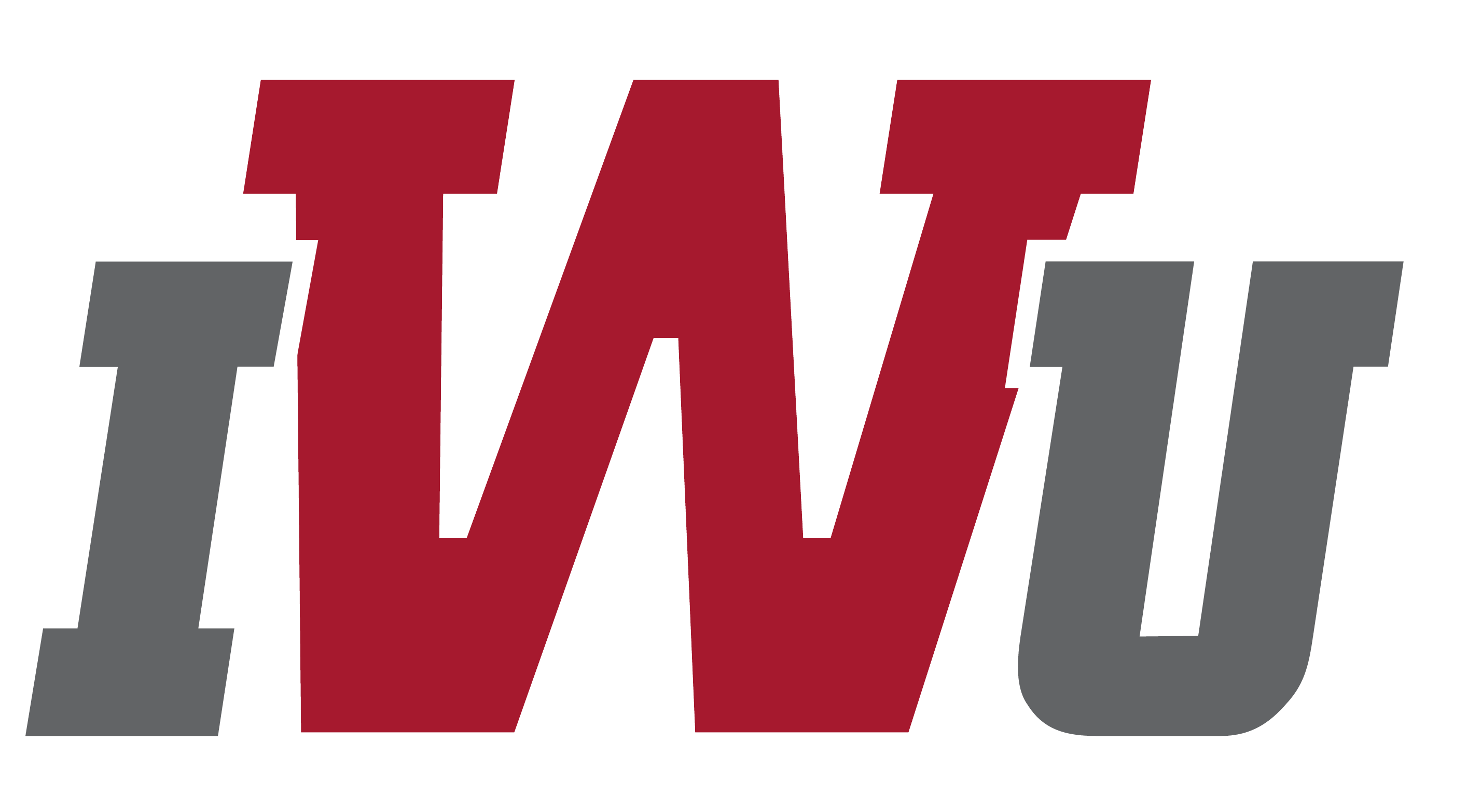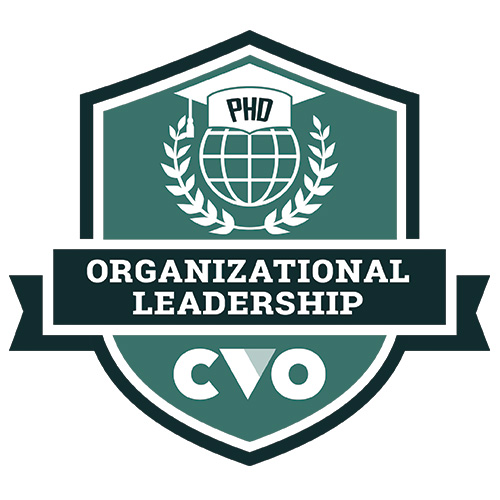 Online Ph.D. Organizational Leadership Degree
Next Start |
Request Info
Apply Now
Online Ph.D. Organizational Leadership Degree
Next Start |
Request Info
Apply Now
Are you ready to lead organizational transformation? IWU’s Ph.D. in organizational leadership degree program can equip you to drive performance and overall outlook forward within your organization. Plus, complete your Ph.D. in organizational leadership online!
Why Pursue My Doctorate in Organizational Leadership Online at IWU?
From an award-winning doctorate in organizational leadership program to offering our Ph.D. in organizational leadership degree online, IWU has aimed for the highest caliber of higher education experience for more than a century—and online education for more than a quarter century. We lock in your tuition rates, which means no tuition hikes for the duration of your program. We are also proud to offer the support you need to have a meaningful impact on organizational performance and outlook through faculty who bring a practitioner-centered approach to your learning and curriculum aligned to industry standards and best practices. Our Christian faculty teach from the same biblical worldview valued on our campus, so that students can implement these principles in a fulfilling career.
What Will I Learn in an Online Ph.D. Organizational Leadership Program?
Explore the essentials of the organizational leadership system – from advanced leadership and followership theory to organizational theory and design to leading change, entrepreneurship, and artificial intelligence to global perspectives on leadership and more. A dissertation component strengthens conclusions in your learning.




#4 Online Leadership Ph.D. Program

#1 Online Leadership Ph.D. Program
What Makes IWU Different?
IWU has provided education for more than 100 years.
Christ-centered support, resources, and services to online students, staff and faculty.
Discover online student resources to help along your journey.
Financial aid is available in the form of grants, loans, scholarships, veterans’ benefits, and employer reimbursement.
Coursework for your doctoral degree covers how to:

These courses contain the program-specific knowledge. Upon completion, you should have the tools to conquer your new career with confidence. For a full list of courses required to complete your degree, please visit the course catalog. Click on a course below to view the description.
DOL-715,DOL-720,DOL-735,DOL-740,DOL-750,DOL-760A,DOL-760B,DOL-760C,DOL-800,DOL-810,DOL-820,DOL-830,DOL-840,DOL-855,DOL-860A,DOL-860B,DOL-860C,DOL-875,DOL-880,DOL-885,DOL-915,DOL-920

The DeVoe School of Business, Technology and Leadership has an amazing group of full-time, affiliate and adjunct faculty members that assist with coursework for all of our students - on the Marion, Indiana, campus, at various sites in Indiana, Kentucky, and Ohio, and online for students around the world.

The goal is to admit highly qualified students, with clear career objectives, who choose to enter the doctoral program after obtaining a master's degree. To apply for admission to the doctoral program, the applicant must complete the following steps:
Prospective students with disabilities are not required to identify themselves to Admissions or Disability Services. However, those interested in receiving academic accommodations are encouraged to connect with Disability Services at 765-677-2257 or ADARequest@indwes.edu as early as possible to allow for a review of documentation and the formulation of an accommodation plan.
Consistent with the College of Adult and Professional Studies (CAPS) categories for admitted students, Ph.D. students may be accepted in one of the following designations:
Regular – candidate satisfactorily meet all requirements. Student may be granted regular admission with no restrictions.
Probation – candidate has GPA, graduate program, leadership experience, or application essay-based items that fall below minimum requirements. Student may be granted probationary status that can be removed by achieving the minimum GPA (3.25) after taking the two sessions in the program (typically three or four courses). The Dean/Chair my extend the probation and determine the number of courses to be completed in order to change status. Any student failing to remove the probationary status will be academically suspended from the program.
Provisional – candidate has incomplete application file (e.g., in process of completing master’s degree). Student may be granted provisional acceptance pending completion of file prior to the end of first course. Failure to meet deadline will result in the dismissal from the program.
Unclassified – candidate not pursuing university degree. In special circumstances, a candidate may be accepted as an unclassified student and able to take up to 12 hours of doctoral work with approval of the division chair. Financial Aid restrictions may apply. Students receiving unclassified status must reapply for regular admission it they desire later to pursue a degree program.
A student accepted into the Ph.D. program may request a one-time deferral to the next cohort start. For example, a student accepted for January start may defer start to the following July cohort. A student accepted for July start may defer to the following January cohort. After one deferral, the student must re-apply for admission to the program. The Admissions Selection Committee retains the right to waive the one-deferral restriction for special circumstances.
Upon acceptance into the program and completion of academic and financial clearance, a student may start the program, after conferring with the Division Chair, by taking the one-credit hour DOL 760A by itself when offered or by taking courses in different combinations, subject to pre-requisite conditions, creating a starting sequence of courses that builds to a full load. An alternative start sequence will lengthen the amount of time spent in coursework and the degree program to completion.
*Note: With approval of the Division Chair, students who complete all current 700 and 800-level courses (48 credit hours) in the program may be conferred the Master of Arts in Advanced Leadership Studies (MAALS) degree. Students who receive the MAALS are not eligible to receive the IWU Ph.D. in Organizational Leadership.
All doctoral courses are a blend of live and interactive online discussions. Students are expected to attend all required live sessions and substantively engage in all interactive online discussions, tests, quizzes, and prescribed learning activities.
Ph.D. students must complete a minimum of three residencies during their doctoral program as demonstrated by in-person attendance and successful completion of courses in the July term-session in which the student is enrolled. These Summer Residencies normally are attended during consecutive years corresponding to the coursework phase of the degree program, but attendance at Summer Residency is required for any courses taken during the July term session each year.
A student who has not attended courses for three years or less and who wishes to re-enroll in the Ph.D. program must first contact the Division Chair to complete a re-enrollment request. The Division Chair may confer with the Admissions Committee to determine eligibility for re-enrollment. If re-enrollment is approved, the student may reenroll in the program after going through the university re-entry protocols. Students who have not attended courses for three years or more are not eligible for re-entry to the program unless the program version has changed such that they would be able to earn 60 new, unique credits when compared to their previous program of study.
Students sitting out of the program for more than 90 days are subject to current tuition rates upon returning. Students re-entering after six months are subject to any changes made in the curriculum in the intervening time as well as current catalog policy. Re-enrollment is limited to those in the coursework phase.
After the completion of all coursework (DOL courses numbered DOL-915 and lower), a comprehensive examination will be administered to each student in the Ph.D. program. This exam will be designed to:
The exam will be constructed to cover the major domains of the program and will be administered by a committee of full-time faculty in the Division of Leadership and Followership Studies or other qualified faculty as determined by the division. The Comprehensive Examination Manual is published annually. Students are required to follow all policies, procedures, and guidelines contained in the most recent guide. Students must successfully pass the Comprehensive Exam to become dissertation students in the program.
The dissertation will be a research-based, practice-centered inquiry that attests to the student's understanding of the field and ability to conduct scholarly inquiry about an issue related to leadership practices and performance in organizations from which other leaders can benefit. In addition, the research must provide a unique contribution to the understanding of organizational leadership.
Students must conduct primary research using qualitative, quantitative, mixed methods, or any other type of research that meets the approval of their Dissertation Committee. The dissertation is expected to meet the highest standards of scholarship and inquiry and should demonstrate doctoral-level composition and format. The student should identify the problem and its significance, outline the background and literature that informs the problem, and collect and analyze data. The process should result in a written document detailing findings, implications, and recommendations for future policy, governance, and/or practice.
For the Ph.D. in Organizational Leadership major, coursework comprises 48 credit hours. Then, the dissertation includes a minimum of an additional 12 hours. Three credit hours of a Dissertation Seminar (DOL-915) and nine credit hours of dissertation credit after DOL-915 are required to reach the 12 credit-hour dissertation threshold. The coursework (48 hours) and dissertation (12 hours) combine to make the Organizational Leadership major a 60-credit hour program.
Every Ph.D. in Organizational Leadership student will be required to write and defend a dissertation. The Organizational Leadership course of study emphasizes the development of theory-in-use research and skills with a practitioner focus. A doctoral research study addresses a problem of practice, where the focus is upon the integration of knowledge or its application. A dissertation generates or confirms knowledge and expanded capacity while linking theory-in-use to current best practice. The process of scholarship, research, and leadership utilizes a variety of research methods, including empirical, interpretive, or critical. All doctoral research studies and dissertations will result in a substantial written document.
A Dissertation Manual will be released annually by the Division of Leadership and Followership Studies. Students are required to follow all policies, procedures, and guidelines contained in the most recent manual. Students should consult their Dissertation Chair regarding specific questions related to the requirements of the Dissertation Manual.
Doctoral students not completing the dissertation by the end of the 12 hours of dissertation courses (DOL 915 and DOL 920) will be required to maintain continuous enrollment. They will be required to enroll in a one-hour Dissertation Continuation course (DOL-922) with the university each successive term until the dissertation is successfully defended or the maximum time for degree completion is reached. Students will pay the one-hour tuition fee per term to maintain continuous enrollment. Failure to remain enrolled during the dissertation continuation phase will result in dismissal from the program with no opportunity to re-enroll in the program.

Indiana Wesleyan University is accredited by The Higher Learning Commission (HLC), www.hlcommission.org, 312-263-0456. Other accreditations and associations of Indiana Wesleyan University are available at www.indwes.edu/about/iwu-profile/accreditation.